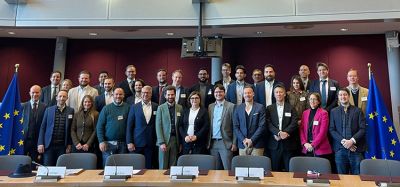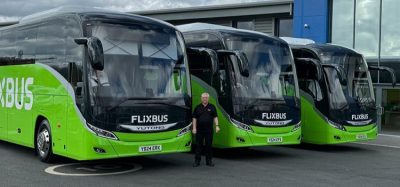West Midlands to welcome UK’s first 5G connected Road Sensor Network
- Like
- Digg
- Del
- Tumblr
- VKontakte
- Buffer
- Love This
- Odnoklassniki
- Meneame
- Blogger
- Amazon
- Yahoo Mail
- Gmail
- AOL
- Newsvine
- HackerNews
- Evernote
- MySpace
- Mail.ru
- Viadeo
- Line
- Comments
- Yummly
- SMS
- Viber
- Telegram
- Subscribe
- Skype
- Facebook Messenger
- Kakao
- LiveJournal
- Yammer
- Edgar
- Fintel
- Mix
- Instapaper
- Copy Link
Posted: 18 June 2021 | Intelligent Transport | No comments yet
The 5G connected network of roads will provide quicker and more accurate data to traffic control centres than what the current system of data collection offers.


Transport bosses are harnessing the power of 5G technology to cut traffic congestion on some of the West Midlands busiest roads.
A congestion busting network of 5G sensors will relay live traffic information to the regional control centre to enable swift action to be taken as queues build up – perhaps diverting buses, implementing diversions and issuing instant warnings to motorists.
The traffic data will also be used to spot traffic trends and help plan future transport development.
West Midlands 5G (WM5G) and Transport for West Midlands (TfWM) have joined forces to work on the project to demonstrate how 5G technology can make a major impact on our road network.
The project centres around the Key Route Network, a set of A and B roads equivalent to seven per cent of the available network that carry over half of all traffic within the region.
TfWM says this has resulted in congestion hot-spots affecting drivers and bus passengers alike – something which the Road Sensor Networks project hopes to alleviate.
In its first phase, the project aims to capture a more granular picture of traffic flow through the deployment of various of 5G enabled sensors, radar and cameras across the key route network. The two organisations hope this insight will prove critical in reducing congestion and predicting and managing increasing levels of traffic particularly during major events or incidents.
“This sensor network is yet another example of how the West Midlands is at the forefront of 5G technology and the cutting edge of transport innovation. 5G is far more than just quicker streaming of movies, and this works shows the difference it will make to people’s everyday lives across the region,” said Andy Street, Mayor of the West Midlands.
“The Road Sensor Network project will help make our roads safer and more efficient, this will give the West Midlands a critical advantage when considered for future development and investments.”
The project supports the Regional Transport Coordination Centre (RTCC) and Local Authority Traffic Control Centres to provide real-time anonymised insights about traffic flow and capacity on the roads.
To date the region has relied on manual surveys of traffic flows using pneumatic tubes or limited coverage of CCTV and Automatic Number Plate Recognition (ANPR) cameras to gauge the number of vehicles and journeys being undertaken on the region’s roads. This approach is limited in terms of the data and information it provides, making it difficult to accurately predict or model transport activity on the road network.
5G’s high speed and low latency (the time from action to reaction) enables the data captured to be anonymised and transferred to the Regional Traffic Control Centre (RTCC) in near-real time, building a more accurate simulation model of anticipated traffic and improving congestion management.
TfWM claims 5G can also support the collection of a much richer set of data including pedestrian, cycle movements and supports evaluation of Future Transport Zone initiatives such as demand responsive transport and e-Scooters.
The Road Sensor Network will also deploy environmental sensors to gain greater insight into noise levels, particulates, CO and CO2 counts, as well as weather and humidity data. This kind of information will support the TfWM in meeting air quality objectives and help the region reduce its emissions footprint; which in turn will improve the health and wellbeing of local citizens and road users.
“The Road Sensor Network project is a great example of how deliberate application of connected technologies can provide the insights necessary to solve some of our biggest transport problems,” said Chris Holmes, transport programme director for WM5G.
“The anonymised, GDPR compliant information captured during the project will be sufficient to start improving the flow of traffic across the West Midlands’ Key Route Network and improve access to the region. Better connected roads will ultimately support local financial growth as it will be quicker and easier to travel for business, leisure, or academia.”
Related topics
5G & Transport Communications, Artificial Intelligence, Fleet Management & Maintenance, Intelligent Transport Systems (ITS), Transport Governance & Policy, Travel & Passenger Information
Related modes
Car
Related cities
UK, West Midlands
Related organisations
Transport for the West Midlands (TfWM), West Midlands 5G (WM5G)
Related people
Andy Street, Chris Holmes








